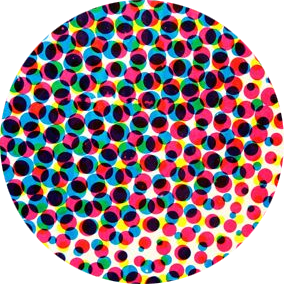“Alias” and Communities of Healing

The story of Jessica Jones is suffused with pain and trauma. But “Alias” is also a story about reckoning with pain, and (tentatively) healing. Communities of women are essential to that healing, pulling Jessica out of despondency and toward a better future. 1/12 #JessicaJones




Later depictions of Jessica and Carol’s friendship are not devoid of clichés; mileage will vary on how some conversations attempt to mimic “Sex & the City.” But the fact Carol is singled out to be Jessica’s friend and main Avengers contact is significant. 5/12

When she debuted as Ms. Marvel in 1977, Carol Danvers was was meant to strongly resonate w/ second-wave feminism. Gloria Steinem was a direct inspiration. Where Steinem put Wonder Woman on the first cover of “Ms” magazine, Carol puts herself on the cover of “Woman” magazine. 6/12

Carol is also subject to sexual abuse in an infamous story from 1980. In Avengers #200, a being named Marcus manipulates Carol’s mind to impregnate her with himself. Basically: Carol gives birth to her rapist then departs the earthly plane to live with him. 7/12

When the Avengers attack Jessica in Alias #26, it’s Carol who recognizes & rescues her. The same issue calls back to Carol confronting the Avengers about her abuse in Avengers Annual #10. Jessica in Carol’s role, lending context to Carol’s ability to see Jessica’s pain. 8/12

Jean Grey of the X-Men also plays a central role in helping Jessica. Jean, of course, has her own history of abuse. In the Dark Phoenix Saga, she is psychologically and physically manipulated by the villain Mastermind, who convinces her she’s in love with him. 9/12

Jean Grey also resonates strongly with feminism. In X-Men #101 (1976), in a story that evokes feminist consciousness-raising, Jean literally remakes herself from the ground up, rejecting the Marvel Girl codename and costume to become the ultra-powerful Phoenix. 10/12

In Alias #26, Jean—notably wearing her green Phoenix costume—uses telepathy & empathy to help Jessica wake from a coma borne of physical and psychological trauma. And in Alias #28 (pictured), Jean returns, proffering a “psychic trigger” that helps Jessica resist Killgrave. 11/12

Following Killgrave’s defeat, Carol hugs Jessica in an expression of pride, relief, and empathy, and Jessica cries on her shoulder. But they’re hopeful tears. Jessica looks skyward with the sun on her face, physically supported by the love and strong arms of her friend. 12/12
